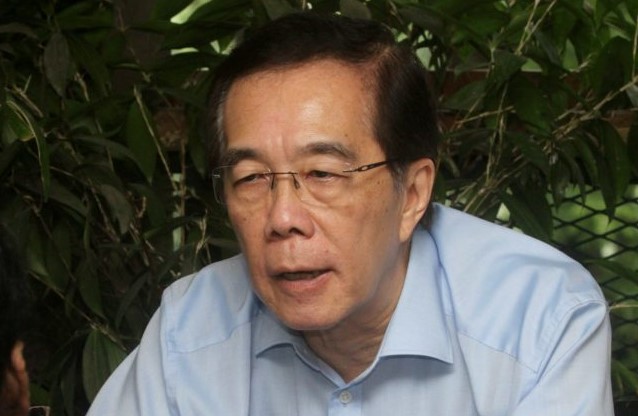KUALA LUMPUR, May 20 — Gilead Sciences has excluded Malaysia from receiving its experimental remdesivir Covid-19 treatment in deals signed with five generic companies in India and Pakistan.
The American drug maker recently signed non-exclusive voluntary licensing agreements with Cipla, Ferozsons Laboratories, Hetero Labs, Jubilant Lifesciences, and Myla to manufacture and distribute remdesivir to 127 nations.
The five generic companies can set their own prices without paying royalties to Gilead until the World Health Organization (WHO) declares an end to the novel coronavirus public health emergency, or until another medicine or vaccine is approved to treat or prevent Covid-19.
According to Gilead, the 127 nations that will receive generic remdesivir mainly consist of low-income and lower-middle income countries, but also includes several upper-middle- and high-income countries that it said face significant obstacles to access.
The licencing territories include India, Pakistan, African nations, the Pacific Islands, and most Asean members — Cambodia, Indonesia, Laos, Myanmar, the Philippines, Thailand, and Vietnam. The only three Asean countries excluded were Malaysia, Singapore, and Brunei.
Gilead originally developed remdesivir, an antiviral drug, to combat Ebola and other related viruses. The United States pharmaceutical company said remdesivir is an experimental medicine that doesn’t have established safety or efficacy to treat any condition, and that the drug has not been approved anywhere globally for any use.
However, the US Food and Drug Administration has issued emergency use authorisation for remdesivir treatment in hospitals for coronavirus, after preliminary trial results indicated that the medicine could successfully treat serious Covid-19 cases, STAT reported.
There are several clinical trials to test the safety and efficacy of remdesivir in treating Covid-19 patients. One of it is the WHO Solidarity Trial, which Malaysia is a part of, that compares the safety and effectiveness of remdesivir and three other treatments for hospitalised adults diagnosed with Covid-19. Gilead said it provides the study drug for free.
Veteran physician Dr Milton Lum said Gilead likely excluded Malaysia from its remdesivir deals with generic companies because Malaysia is classified as an upper middle-income country.
He said pharmaceutical pricing globally is generally two-tiered, where drug makers charge developing countries lower for their products than upper middle-income and high-income nations.
“We’ll have to pay a price very similar to that of Singapore, Hong Kong, Taiwan, South Korea, and all that,” Dr Lum told CodeBlue.
He added that when pharmaceutical companies market their products in Malaysia, however, they may make up for the price by giving bonuses — which are free additional drugs, like buy 100 and free 30 — so that the net price is lower. The Malaysian public health care system commonly uses generics; physicians say that the newest treatments, such as for cancer, are either not available in government hospitals or subject to quotas.
Malaysia is classified as an upper middle income country, according to the World Bank, with a gross national income (GNI) per capita of US$10,460 in 2018.
Dr Lum, however, said this was a very crude assessment of a country’s wealth, pointing out that income inequality is very high in Malaysia. He also noted that Malaysia is the only Asean country with three malnutrition diseases: childhood stunting and wasting, and anaemia in pregnant women.
He questioned what value Malaysia was getting from participating in the WHO clinical trial on coronavirus treatments.
“What benefit are we getting in terms of drug pricing?” Dr Lum said.
“If your people sacrifice time, maybe even lives, to participate in these trials — surely there must be some benefit for the country.”
Health director-general Dr Noor Hisham Abdullah said last month that the WHO Solidarity Trial would begin in nine Ministry of Health (MOH) hospitals. MOH Clinical Research Centre director Dr Goh Pik Pin tweeted last April 21 that the first patient in Malaysia has been enrolled in the study.
When asked what advantage Malaysia was gaining from the WHO clinical trial, Dr Noor Hisham told CodeBlue: “In the trial, the medicine is provided”.
Gilead previously tussled with Malaysia after the-then Barisan Nasional administration rejected Gilead’s voluntary licence offer for sofosbuvir, using a compulsory licence in 2017 instead to obtain a generic version of the Hepatitis C drug without the consent of Gilead that owned the patent. A World Trade Organization agreement allows governments to grant compulsory licences to permit generic companies to copy a patented medicine without the original drug maker’s consent.
When asked if the sofosbuvir issue could have played a factor in Gilead excluding Malaysia from remdesivir access, Dr Lum said: “I wouldn’t be surprised”.
“However much a decision is commercial, human feelings come into that decision.”
STAT reported an academic as saying that Gilead’s voluntary licencing agreements on remdesivir would make it unlikely that the Indian government would issue compulsory licences to allow other companies to manufacture and export remdesivir versions, “with key Indian firms entering into partnership with Gilead”.
Ken Shadlen, a political scientist at the London School of Economics, was quoted saying that more widespread global supplies of remdesivir would have to come from another country that agrees to issue a compulsory export licence and also has sufficient production capacity with large domestic pharmaceutical companies, which he said seemed unlikely.
“Of course, this is all predicated on the assumption that remdesivir is easy to reverse-engineer, as was the case with small-molecule AIDS drugs, so the barriers to production are largely legal. If the drug is as difficult to produce as Gilead says, then it’s not clear what compulsory licenses will accomplish, anyway. We’re still learning a lot about the drug itself,” he was quoted saying.
STAT also reported that Gilead was anticipating global demand for remdesivir and may strike production deals with yet other companies to avail the treatment to richer nations that are not covered by its new licencing agreements.








